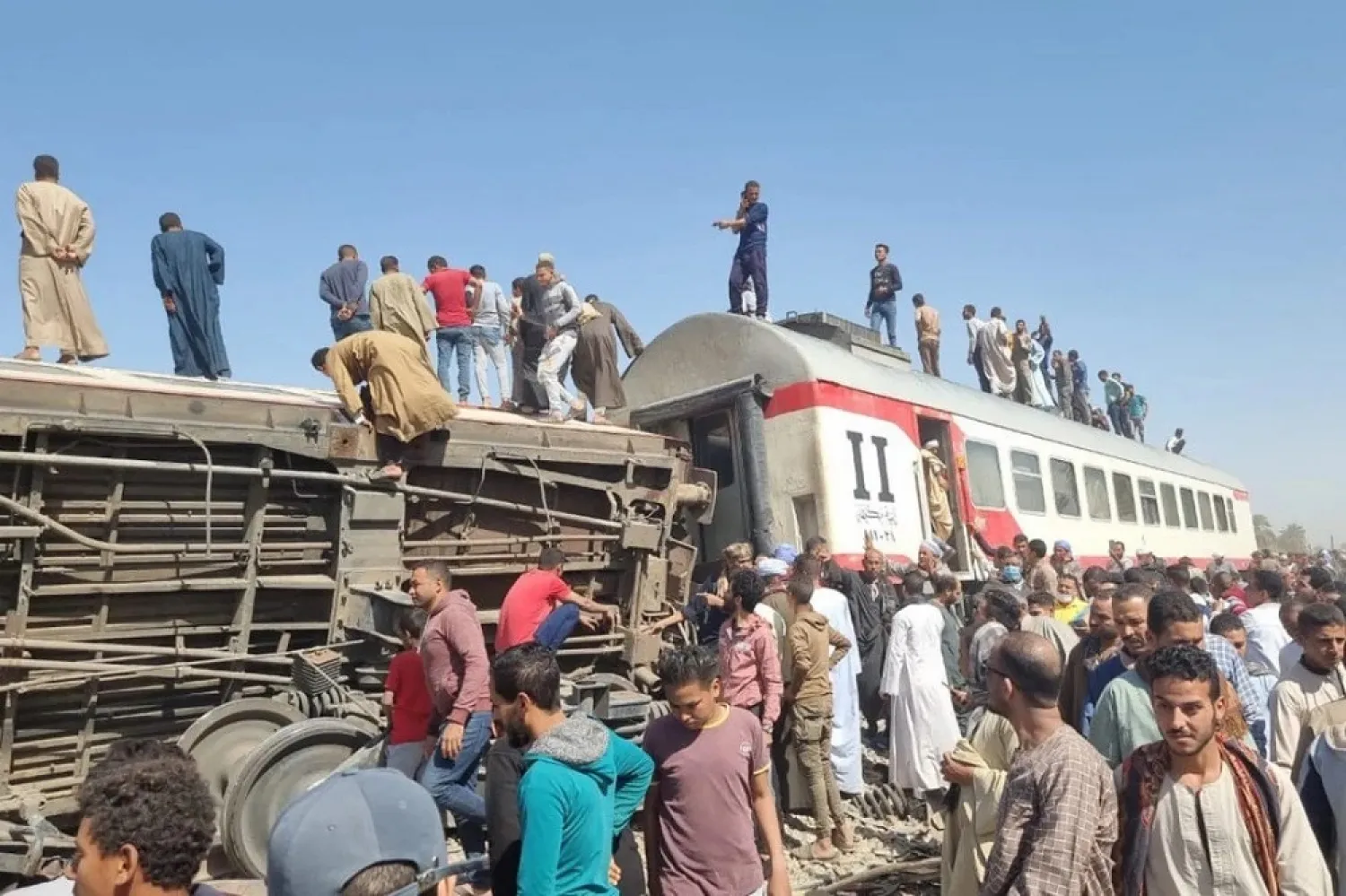Saudi Arabia expressed on Friday its condolences to Egypt over the train collision that left dozens of people dead and injured.
The Foreign Ministry offered its condolences to the families of the victims and the leadership, government and people of Egypt.
“Unknown individuals” triggered the emergency brakes on one of the trains causing it to stop, the rail authority said. The second train, which was travelling in the same direction, crashed into the first from behind, it added.
Pictures showed train carriages derailed, several of them badly damaged, above a channel of water, as crowds looked on.
The public prosecutor’s office said it had ordered an investigation into the crash, which took place close to the Nile-side town of Tahta, about 365 km (230 miles) south of Cairo.









